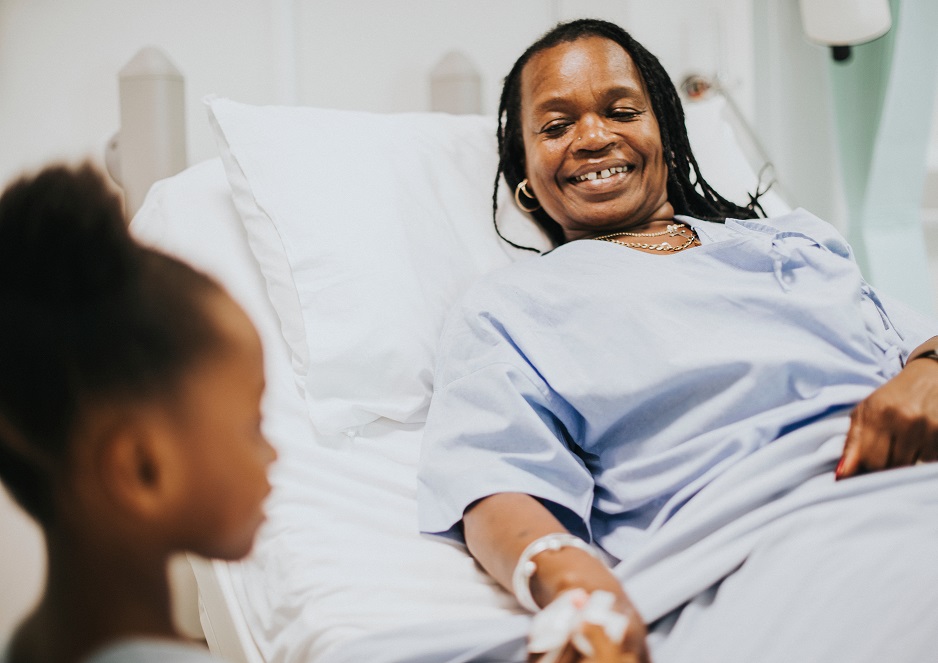Recovering after donating a kidney
Leaving hospital and your post donation aftercare.
During your time in hospital after donating a kidney, you will meet a range of healthcare professionals who will advise you on your short and long term follow up.
Please ensure you have discussed the points covered on this page with your team before you leave hospital.
It is very important that you make a safe and full recovery from your surgery.

Before you leave hospital, make sure you have discussed:
- Pain management and medication
- Wound management and dressings
- Thrombo-embolism prophylaxis (reducing risk of blood clots)
- Constipation/bloating/diet
- Exercise and rehabilitation
- In-patient medical certificate
- Letter for General Practitioner
- Someone to take you home and stay with you
- Follow up appointment
When you return home
We always recommend having someone stay with you for the first few days you are home.
Your family and friends are your second pair of eyes and ears so please listen to them if they are concerned about you.
Make sure you know how to contact your team or the appropriate emergency services.

We must be aware if you have:
- High temperature or fever
- Nausea or vomiting
- New pain in your tummy or lower back
- Ooze or redness around any of your wounds or if they are hot to touch
- Discomfort or burning when passing urine or cloudy or smelly urine
If you have anything else that is concerning you or that you are unsure about, please speak to us.

You will usually be seen for a surgical review within four to eight weeks of your operation.
All living kidney donors are offered lifelong follow up. This is an annual appointment, either at the hospital, with your GP or virtual.
Please discuss with your transplant team and/or local unit to find out which follow up arrangements are available for you.
Kidney function
After donation, your estimated glomerular filtration rate (eGFR) - an estimate of how well the kidneys are filtering out waste products from the blood - will be lower than it was before donation. The level of creatinine - a waste product - in your blood may also be higher. This is a normal result of having one kidney do the work of two, and your remaining kidney should still be perfectly healthy.
For more information about kidney function tests, please download our kidney function tests factsheet

Help promote living donation
Order or download a range of materials, including faith-specific leaflets.
Can’t find what you’re looking for?
For general enquiries
Email: enquiries@nhsbt.nhs.uk
Or call: 0300 123 23 23
